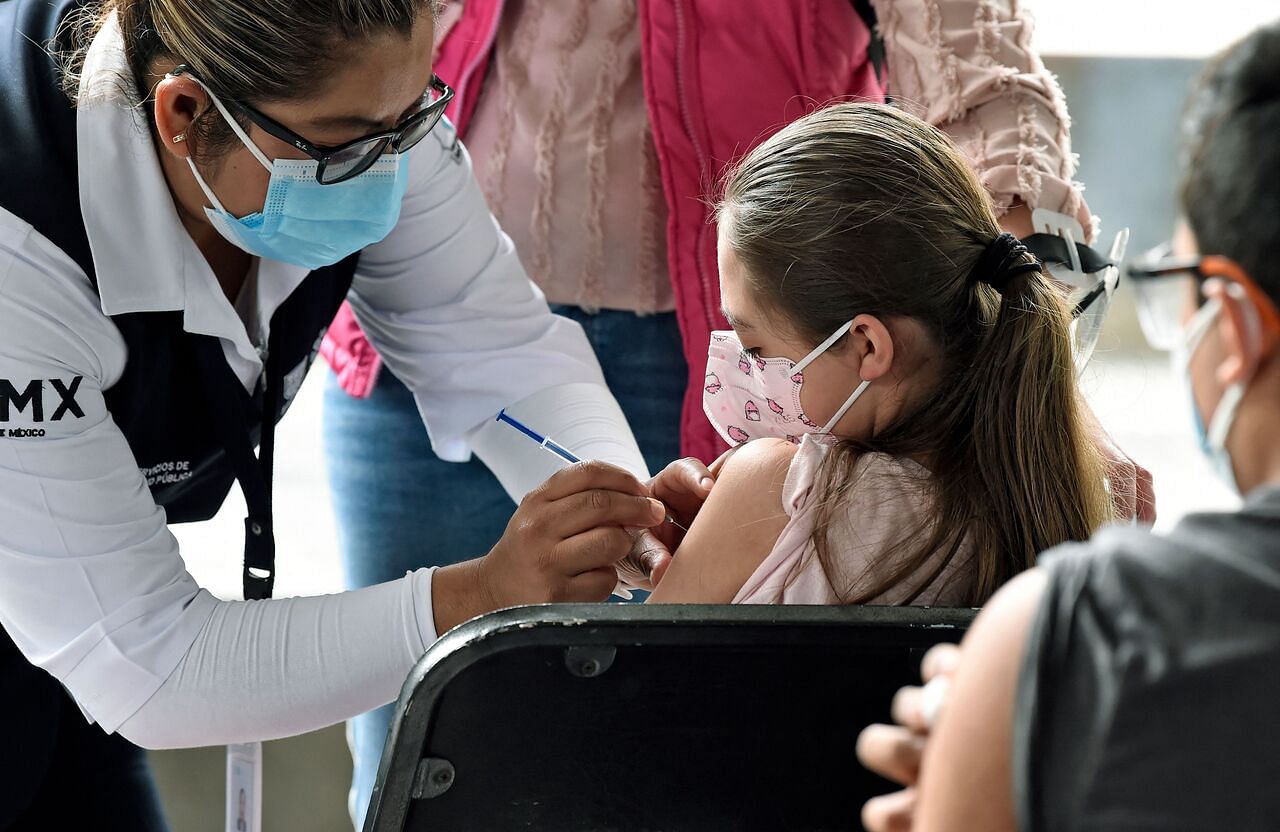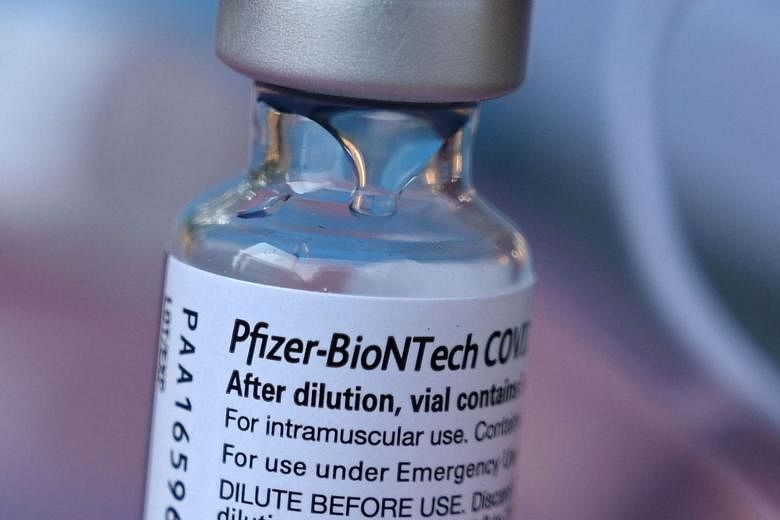WASHINGTON (AFP) - A medical panel of US government advisers endorsed the Pfizer Covid-19 vaccine in five-to-11-year-olds on Tuesday (Oct 26), paving the way for younger children to get their shots within weeks.
The independent experts concluded the known benefits - both directly to kids' health but also in ending school and other disruptions - outweighed the known risks.
After a day of presentations and debate, the final vote was 17 in favour and one abstention.
The Food and Drug Administration, which convened the meeting, is expected to give its formal green light soon, making 28 million young Americans eligible for the shot by mid-November.
"It is pretty clear to me that the benefits do outweigh the risk when I hear about children who are being put in the ICU, who are having long term outcomes after their Covid-19, and children are dying," said Amanda Cohn of the Centres of Disease Control and Prevention (CDC), who voted yes.
"It's never when you know everything - the question is when you know enough," said Paul Offit, a paediatrician at the Children's Hospital of Philadelphia, who also voted yes but reflected on the fact that more complete safety data would become available over time.
He added that many children who are at high risk stand to benefit, and that the theoretical risk of myocarditis, the most worrisome side-effect, would probably be very low, given the lowered dose of 10 micrograms, compared to 30 micrograms in older ages.
Nevertheless, several experts partly caveated their votes by saying they would not favour broad vaccine mandates in schools and the shot should remain a personal decision for families.
Earlier, top FDA vaccine scientist Peter Marks said younger children were "far from being spared harm of Covid-19," adding that, in this group, there had been 1.9 million infections and 8,300 hospitalisations, roughly a third of which required intensive care.
There have also been around 100 deaths, making it a top 10 leading cause of death, he added.
Rare side-effects
An analysis by Pfizer posted by the FDA before the meeting showed the vaccine was 90.7 per cent effective at preventing symptomatic Covid-19.
FDA scientist Hong Yang presented a risk-benefit model that showed at current infection rates, the vaccine would prevent far more hospitalisations from Covid than they might cause from myocarditis.
If community transmission was brought down to very low levels, this may change - but even then vaccination might be worthwhile because of long term risks linked to non-hospitalised cases, she added.
These include multisystem inflammatory syndrome in children (MIS-C), a rare but highly serious post-viral complication, which has affected more than 5,000 children of all ages and claimed 46 lives.
In its clinical trial, Pfizer evaluated safety data from a total of 3,000 vaccinated participants, with the most common side-effects mild or moderate, including injection site pain, fatigue, headache, muscle pain and chills.
There were no cases of myocarditis or pericarditis (inflammation around the heart), but experts agreed there were not enough study volunteers to be able to detect highly rare side-effects.

Matthew Oster, a CDC researcher, gave a presentation on what is known so far about these side-effects among groups already eligible for vaccines.
Of 877 vaccine-induced myocarditis cases in under 29s, 829 were hospitalised, according to official data. The vast majority were discharged but five remain in intensive care.
The rate will probably be lower in the five-to-11 age group than among adolescent males, because it is thought to be linked to testosterone.
The panel weighed this theoretical risk against preventing Covid-19, which may cause more frequent and severe myocarditis.
The meeting comes as the United States is emerging from its latest wave driven by the Delta variant.
Overall, 57 per cent of the total population is now fully vaccinated.
Vaccine confidence has risen in recent months, but the United States remains behind every other Group of 7 nation in per cent of population fully vaccinated.







